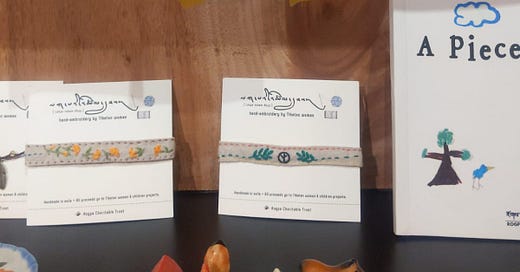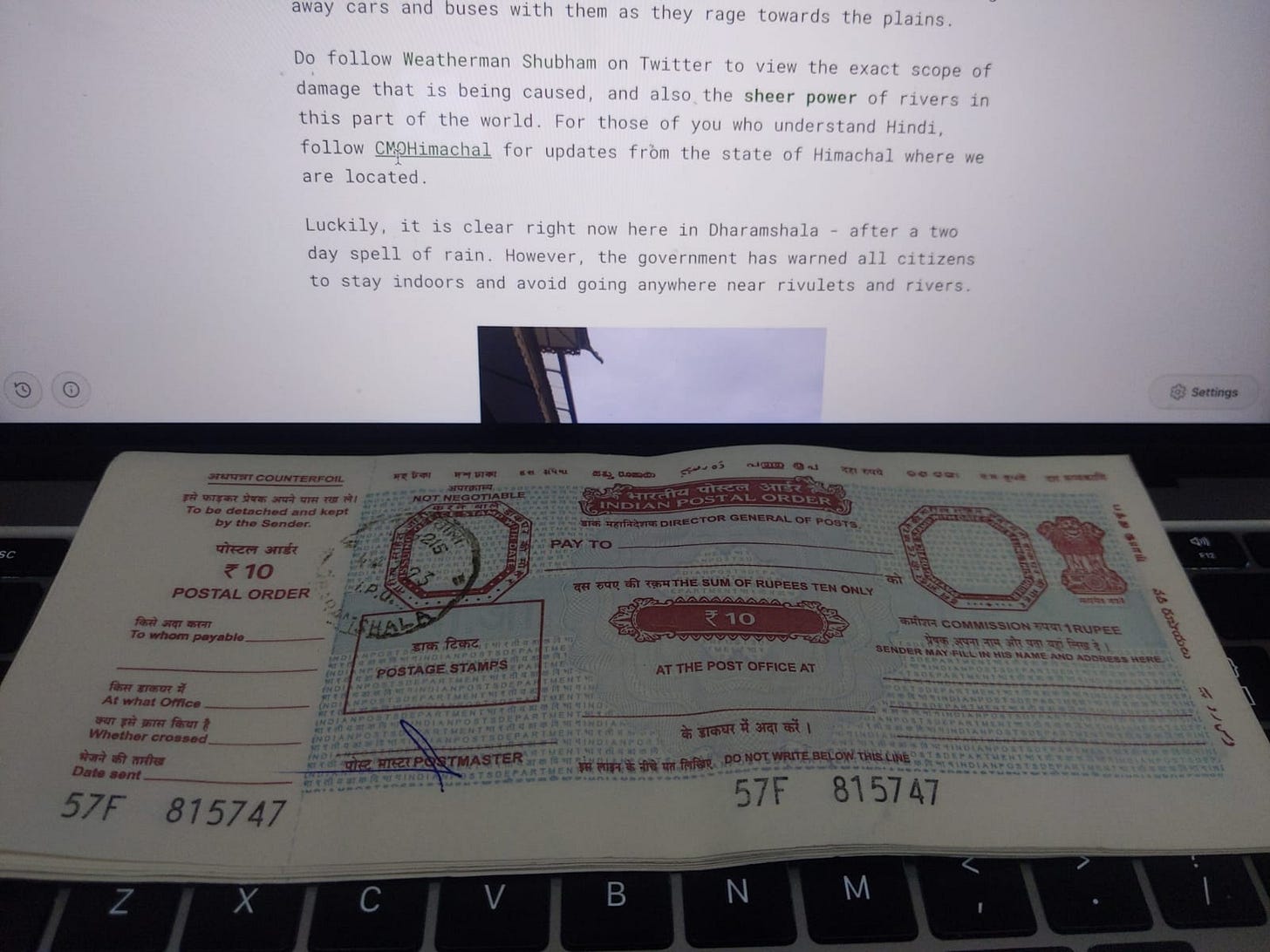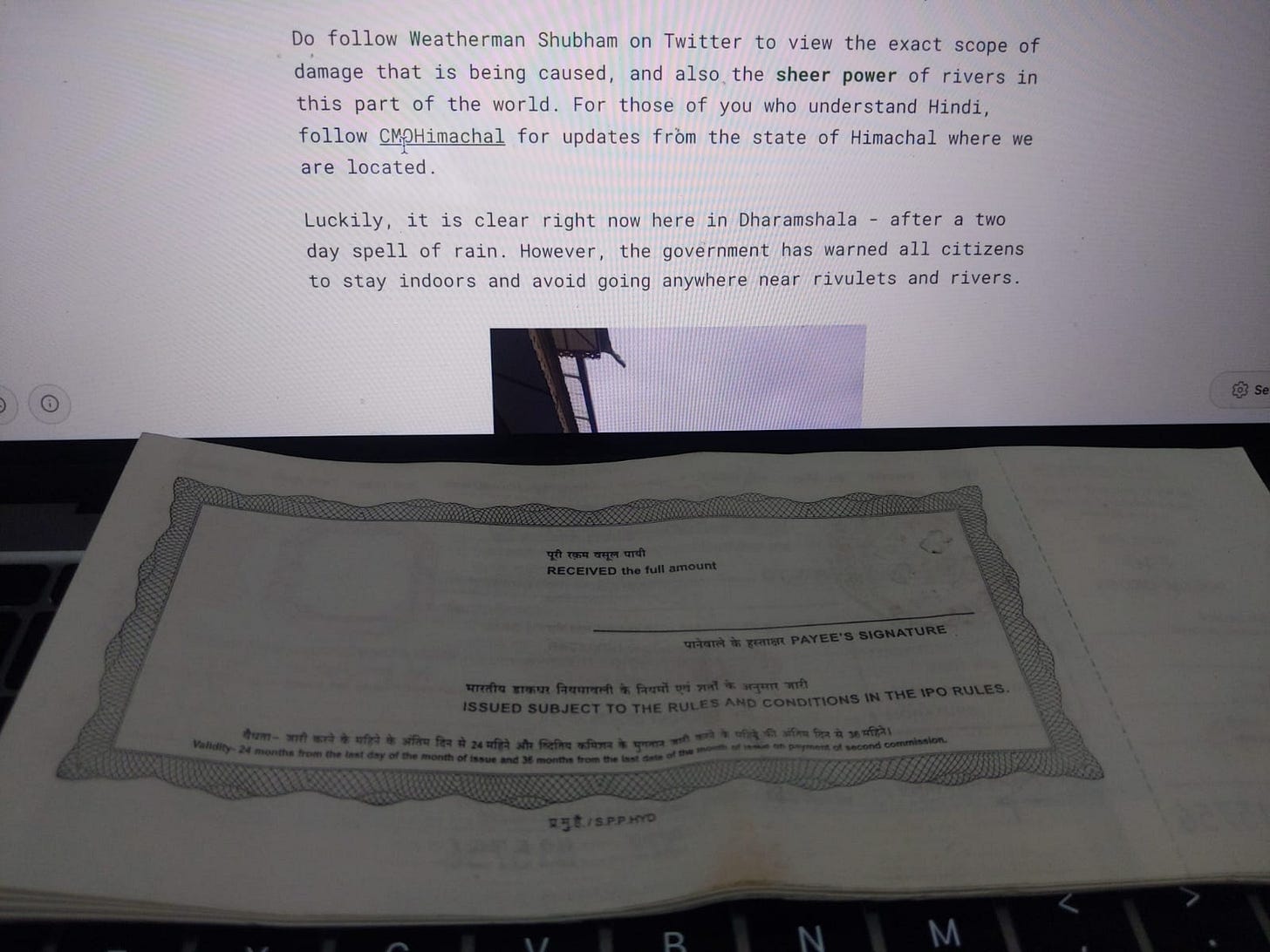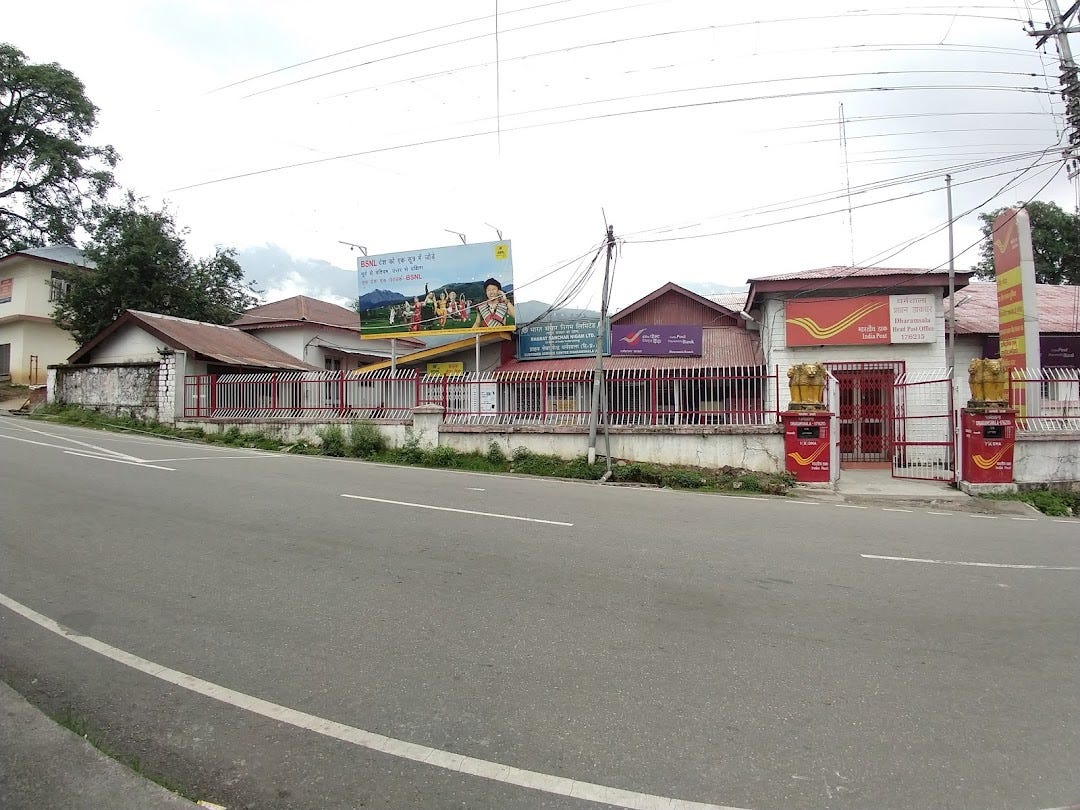Hello everyone! Hope your Monday is going not too bad. It’s been a minute since we wrote our last newsletter. As you read this edition, a huge weather calamity is underway in northern India, particularly the Himalayan region.
We are witnessing a perfect storm wherein the western disturbances have joined forces with the monsoon trough to unleash extremely heavy rainfall over a long duration.
This has led all the major rivers in the region - from both the Indus and Ganga river basins to flood above danger levels - destroying bridges, infrastructure, homes, markets and even taking away cars and buses with them as they rage towards the plains.
Do follow Weatherman Shubham on Twitter to view the exact scope of damage that is being caused, and also the sheer power of rivers in this part of the world. For those of you who understand Hindi, follow CMOHimachal for updates from the state of Himachal where we are located.
Luckily, it is clear right now here in Dharamshala - after a two day spell of rain. However, the government has warned all citizens to stay indoors and avoid going anywhere near rivulets and rivers.
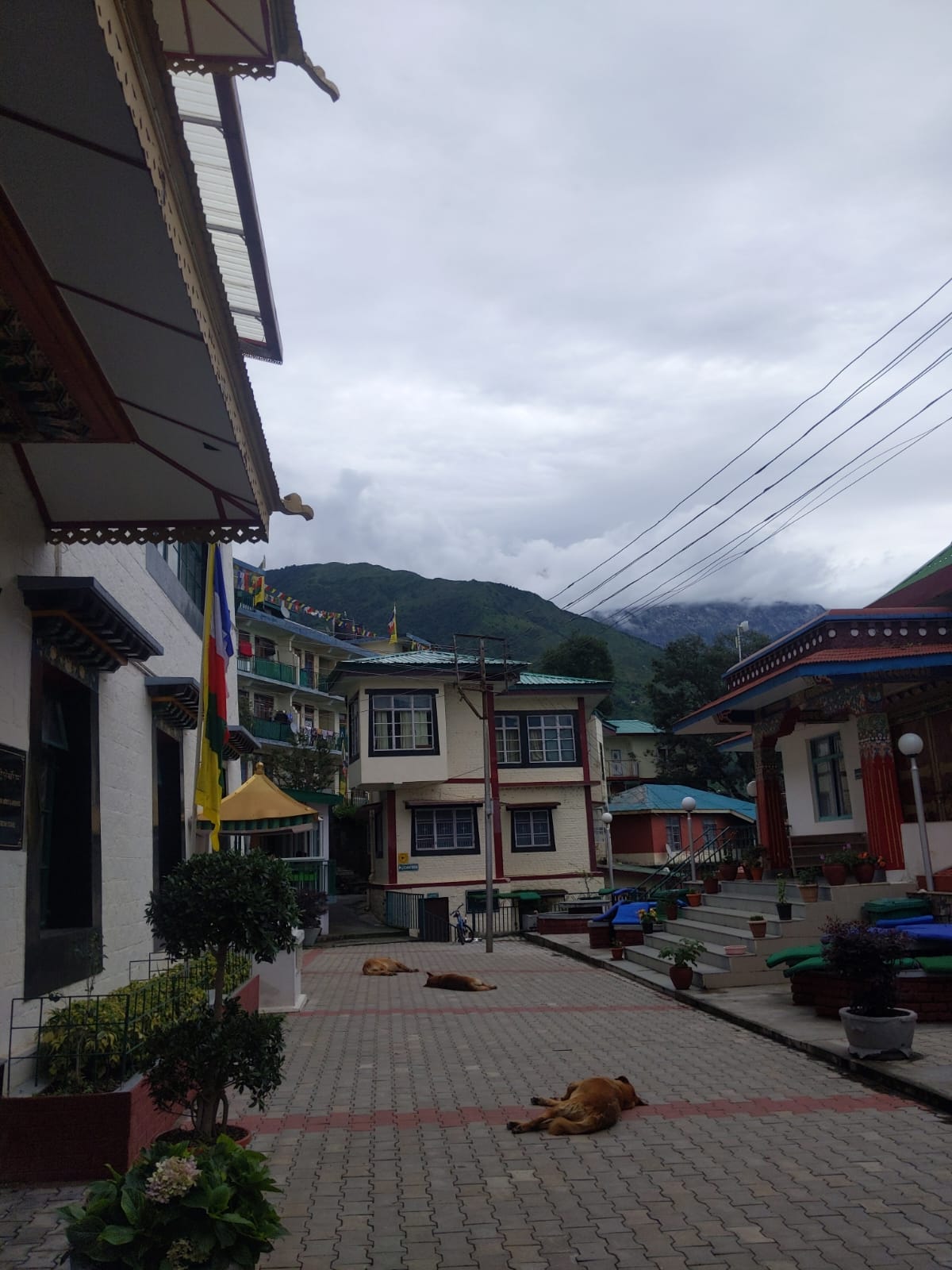
Anyways, back to some of our daily snippets starting with photographs of the 10 Indian Postal Orders we recently got from the post office close to our office:
These, ladies and gentlemen, are what we can call “vintage” ways (read: Indian Postal Order or IPO) of paying the Government in India, when you are seeking information through your “Right to Information” (RTI) as a citizen!
You tear off the portion on the left (to keep for your own records) and attach the remaining part (worth 10 rupees) with a letter detailing what information you are seeking - put it in an envelope, go to the concerned office, get the public information officer (look for their assistant or better, the Peon) there to “receive” your letter and wait for (hopefully) just 30 days to get a response!
We recommend always calling or better, meeting with the officer concerned and build a rapport before sending in your questions - after all, there are humans on the other side of the dais as well and who knows, they may even guide you regarding how best to approach an issue!
We actually want to know a lot from the Government here - from the degree of tree felling done in the past few years to the allocated budget for road repair (especially since some of the arterial roads here keep collapsing each monsoon).
This is what the post office here looks like btw:
Did you know that post offices here in India are actually also banks? Complete with lockers and fixed deposit and mutual fund schemes? They are also central to small town life pretty much - it’s where people come to deposit their hard earned money, get their identity cards made & passports collected, send and receive goods from across the world are dirt cheap rates and the list goes on. The one here even has a museum inside it - can you believe it?
Coming back to Right to Information, there is a far more modern online way to ask for information too, but that is limited to those departments administered by the Union government (also called Federal or Central government in other nations). Here is an example of some of the information we recently received from our National Green Tribunal regarding cases concerning the 7 north eastern states + Sikkim:
41 cases over two years? Compare this to a total of 430 ongoing and pending cases before the four western Himalayan provinces i.e Himachal, Uttarakhand, Jammu & Kashmir and Ladakh! Even if we discount multiple judicial orders passes in ongoing cases, the difference is stark and shed light on just how far environmental law has reached various parts of India. What do you think?
We wanted to share the process of seeking and receiving information here in India with you all to hopefully bring life to some of the concepts we keep coming across - Freedom of Information, Environmental democracy, Environmental Justice et al.
Finally, now that we have this key information - how do we plan to share it? Firstly, through this newsletter so please share it with all those you know would be interested and secondly, through something like this:
Remember when we wrote about the Yojana card that Haqdarshak introduced? This is our version of that - our tracker in a QR, now to be found across Dharamshala!
Well, that is it for this edition of the Dhauladhar - we’re going to leave you with a photograph of a shelf from a very interesting 20 year old Korean cafe in Dharamshala - with a pop-up shop from Rogpa Charitable Trust:
Regards,
Himalayan Advocacy Center
We’re on LinkedIN, YouTube & Instagram! Hit us up anywhere with your thoughts or simply reply to this email - looking forward to collaborating with you! It would mean the world to us if you’d share this newsletter with people around you - the welcome email is always going to come with some goodies!
Postscript:
As you may know, we are a small non profit in the environment + law space located in the Indian Himalayas. We are completely bootstrapped, try to run super lean and yet make it a point to pay all our interns a fair stipend. This means no foreign funding and no fancy headquarters - just a small community - of which you all are an integral part - in the long run we hope!
Whats more - we, at the Center, are determined to localise efforts for the planet, without compromising on the best that the law has to offer. If you have the means, and want to support a committed local undertaking, please do consider contributing to our corpus. We hope to pleasantly surprise you with detailed information on where you money has been spent!

